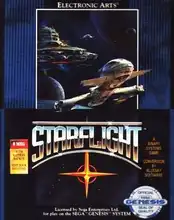Remember firing up the old PC, the hum of the CRT monitor, and the promise of infinite stars? Before photo-realistic graphics and massive multiplayer universes, space exploration games offered a different kind of wonder. They weren't just games; they were portals to the cosmos, letting us pilot tiny ships through vector graphics or chunky pixels, trading goods, dogfighting pirates, and discovering alien worlds with little more than our imagination filling in the blanks. For many of us retro gamers, these early journeys among the stars were foundational experiences.
The Call of the Cosmos: Why We Explored
What was it about these early space exploration games that hooked us? It was the sheer freedom. Unlike linear adventures, games like Elite dropped you into a vast, procedurally generated galaxy with a simple ship and a handful of credits. Your goal was whatever you made it: trader, pirate, bounty hunter, or simply explorer.
This open-ended design, coupled with the mystery of the unknown, fueled countless hours of playtime. Every jump to a new system felt like a genuine discovery. The sparse graphics forced your mind to create the vibrant nebulae and bustling space stations. It was interactive science fiction at its finest.
Pioneers of the Pixelated Frontier
A few titans stand out when we talk about classic space exploration games on PC:
- Elite (1984): The granddaddy of the genre. Its wireframe 3D graphics, massive galaxy (2.8 x 10^14 star systems!), and open-ended gameplay set the standard. Trading routes, combat, mining – it was all there. Playing it felt like peering into the future.
- Star Control II (1992): While mixing exploration with deep story and combat, Star Control II offered an unparalleled sense of discovery. Navigating the galaxy map, seeking out unique alien races (oh, those Syreen!), and uncovering the fate of Earth was an epic quest. The universe felt truly alive and mysterious.
- Wing Commander: Privateer (1993): Taking the cinematic feel of Wing Commander and grafting on Elite-style freedom, Privateer let you live the life of a freelancer on the fringe. Upgrade your ship, run missions, join guilds, or just explore the Gemini sector. It blended narrative hooks with open-world freedom beautifully.
These games weren't just about reaching a destination; they were about the journey, the encounters, and the emergent stories you created yourself.
Beyond the PC: Console Cosmos Explorers
While PC was a stronghold for simulations, consoles offered their own takes on cosmic exploration:
- Metroid Series (starting 1986): While more action-adventure, the early Metroid games (especially Super Metroid) perfected the sense of isolated exploration on alien worlds. Uncovering secrets, gaining new abilities to access previously unreachable areas, and slowly mapping the labyrinthine levels felt like truly charting the unknown.
These console classics brought a different flavor, often more focused on atmospheric world design and ability-gated progression, but the core thrill of exploring a hostile, alien environment remained.
Keeping the Flame Alive: Playing Classics Today
Feeling that nostalgic itch to revisit the pixelated cosmos? Thankfully, these classic space exploration games are more accessible than ever:
- GOG.com (Good Old Games): Many classics like Privateer and Star Control I & II are available digitally, pre-packaged to run on modern systems without fuss. A fantastic resource for legitimate, DRM-free retro gaming.
- DOSBox: For true purists or games not available commercially, the DOSBox emulator is essential. It lets you recreate the old MS-DOS environment to run countless classic PC titles.
- Archive.org: The Internet Archive has an incredible collection of abandonware and playable-in-browser classics, sometimes including early space games.
The Legacy Continues
The spirit of these early space exploration games lives on in modern titles. While graphics and complexity have exploded, the core loop of freedom, discovery, and carving your own path through the stars is a direct descendant of games like Elite. They remind us that sometimes, the most powerful exploration happens not just on screen, but in the vast reaches of our own imagination, sparked by simple pixels and the endless potential of space.
FAQ
Q: What was the very first space exploration game? A: While difficult to pinpoint definitively, Elite (1984) is widely considered the groundbreaking title that defined the open-world space exploration genre as we know it.
Q: Are classic space exploration games hard to run on modern PCs? A: Many are, due to compatibility issues with modern operating systems. However, services like GOG.com provide patched versions, and emulators like DOSBox allow you to run older PC titles.
Q: Were there many space exploration games on consoles in the 80s and 90s? A: While simulation-heavy games were more common on PC, console series like Metroid offered exploration-focused gameplay on alien planets, providing a different but related experience.
Q: Where can I find classic space game manuals or resources? A: Websites like Archive.org, fan wikis dedicated to specific games, and retro gaming communities are great places to find old manuals, maps, and guides that enhance the classic experience.

